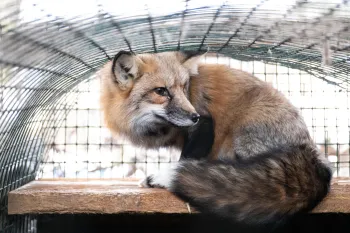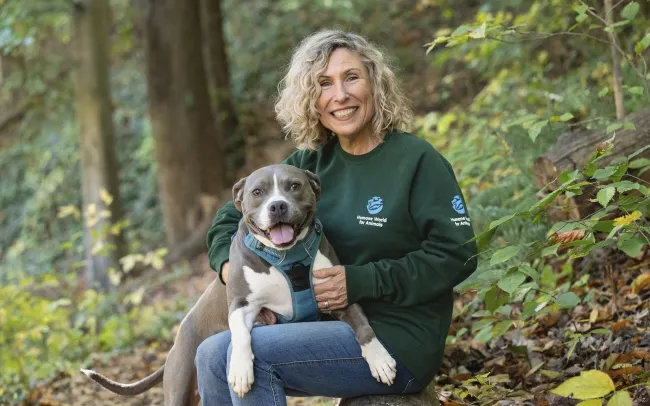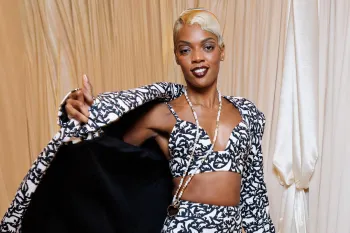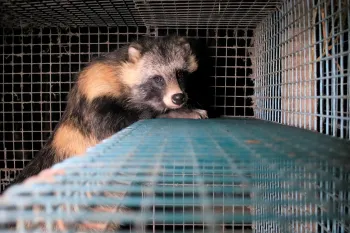The world just became a more humane place for animals, as Condé Nast, the parent company for Vogue, Glamour, GQ, Vanity Fair and several other publications, announced a fur-free policy for all its publications under its sustainability strategy.
The policy bans all new fur from all editorial content and advertising; the only exceptions are used fur and fur considered a byproduct of indigenous practices.
This is huge. These legacy publishing brands have a significant influence on pop culture trends, helping to shape how the public perceives what is fashionable. Condé Nast reaches more than 1 billion people across the world through print, digital, video and social platforms. Prohibiting images of fur in its publications disrupts the idea that fur is glamorous or even acceptable. Already, many people do understand the truth behind fur is that millions of animals are born just to live miserable lives in cages before they are killed. It's a tremendously cruel and environmentally harmful industry.
As PJ Smith, our director of fashion policy here at Humane World for Animals, put it: “When a trendsetter like Vogue says fur is out, it helps create a new cycle for what is acceptable and humane in a modern world.”
Similar to our conversations with ELLE and InStyle magazines before they went fur-free, we were in regular contact with decision-makers at Condé Nast about their fur policy. They let us know that it would be very rare to see images of fur in any of their pages but didn't want to make that policy public. But, following pressure from grassroots activists, they added the policy to their website this past weekend.
Making this fur-free policy official and public is something to celebrate. The impact of these major media outlets going fur-free will likely touch every sector of the fashion industry because fashion brands and retailers that want to advertise in the publication will have to avoid fur. Brands that want to promote their runway collections will have to ensure their fashion shows are fur-free. And social media influencers who want Condé Nast to engage with them will need to opt for fur-free alternatives.
It makes sense that people who want to be relevant in today’s fashion are distancing themselves from the fur industry, as investigation after investigation shows that there is no such thing as a humane fur farm. There’s nothing bucolic or natural about these so-called farms, wild animals, such as mink, foxes and raccoon dogs, spend their entire lives in small wire-bottom cages. Any attempts the animals make to engage in the most basic instinctual behaviors, such as digging and running, is thwarted over and over. A recently published major scientific opinion outlines the reality of fur farming, finding that it fails to meet the basic welfare needs of the animals kept on such farms and concluding that suffering “cannot be prevented or substantially mitigated” in the current caging systems used across the fur industry.
They are younger than 1 year old when their pelts are deemed to be in prime condition, and they are killed. And these deaths are brutal, usually coming through anal electrocution or gassing. Their bodies are then skinned and thrown away.
Not only are brands and consumers turning their backs on the fur industry; dozens of countries, states and cities are passing bans on fur sales, imports and fur farming because of animal cruelty and risks to the environment and public health. This past July, Switzerland became the latest to impose such a ban on fur. This means that the supply chain for producing fur and the marketplace for selling it is shrinking.
The world is shifting away from fur, and it’s about time. We have campaigned on this issue tirelessly for years, working with trendsetters in the industry to ensure that everyone understands that compassion is always in fashion. It is deeply heartening to see the tide continue to turn. We welcome Condé Nast’s policy, and we look forward to engaging the company moving forward to ensure its policy stays strong for the animals and for the people who care about them.




